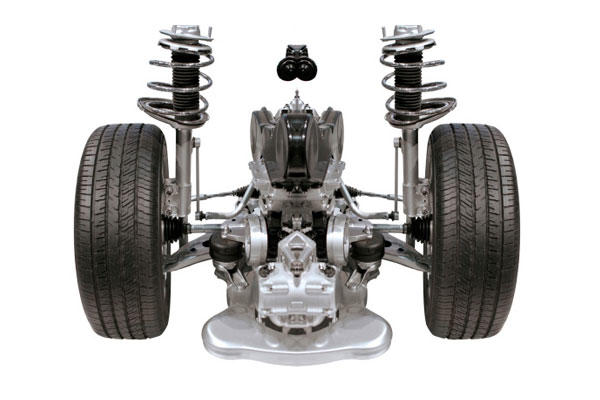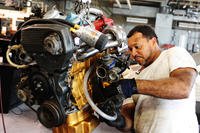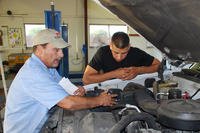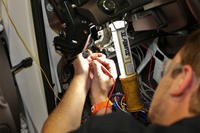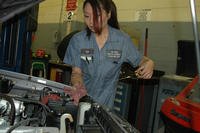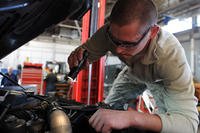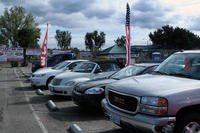Most would agree that brakes are the most important feature of your car—but do you know how to detect when there’s a problem with your brakes, or how to do a maintenance check on your brake system?
Below are the standard warning signs that something might be wrong with your brakes. If you’re noticing any of the following symptoms, be sure to follow the links at the bottom of this article for step-by-step instructions for checking and replacing your brake system, including the master cylinder, brake lines and disc brakes. And if your brakes happen to go out while you’re driving, follow these rules for handling the situation.
1. Unusual Noises
If you hear your brakes squeal or make a grinding noise when you use them, it’s a sign that they may need adjustment or replacement. Grinding noises are particularly serious, as they indicate that your brake pads are worn may need to be replaced.
2. Brake Warning Lights
If the brake or Anti-Lock Braking System (ABS) warning light on your dashboard lights up, it means you’re running on low brake fluid. See the master cylinder section for details on how to add more fluid, and also follow the instructions for brake line inspection—usually low fluid means that there’s a leak somewhere in your brake lines .
3. Pulling
If your car pulls to one side when you apply the brakes, it could mean your brakes are maladjusted, there is brake fluid leakage, or your brakes are worn out and need to be replaced.
4. Pedal Problems
If your brake pedal feels “spongy” or hard to press down, it usually means that air has gotten into the brake lines. You may also be having an issue with low brake fluid. Be sure to check your master cylinder and your brake lines.
5. Bad Vibrations
If your steering wheel, brake pedal or entire car shakes or vibrates when you apply the brakes, your brake rotors may be warped and need replacement.
To head many of these issues off at the pass, be sure to have your brakes checked periodically (once or twice a year).
Related Links:
Brake Failure: Emergency Tips
Brake Maintenance: Checking Brake Fluid
Brake Maintenance: Checking and Replacing Your Brake Lines
Brake Maintenance: Bleeding Your Brakes
Brake Maintenance: Inspecting and Replacing Discs and Brake Pads
